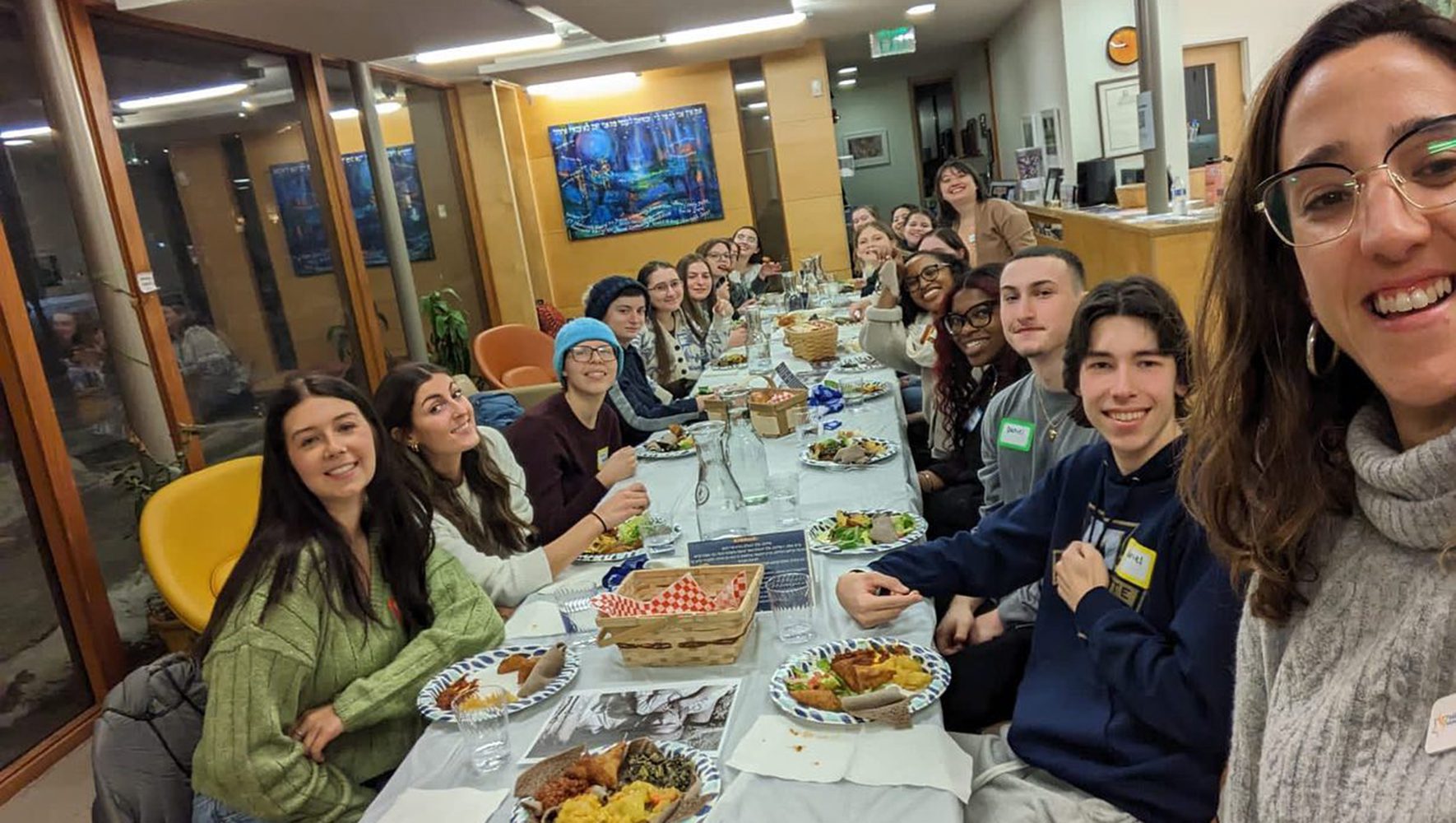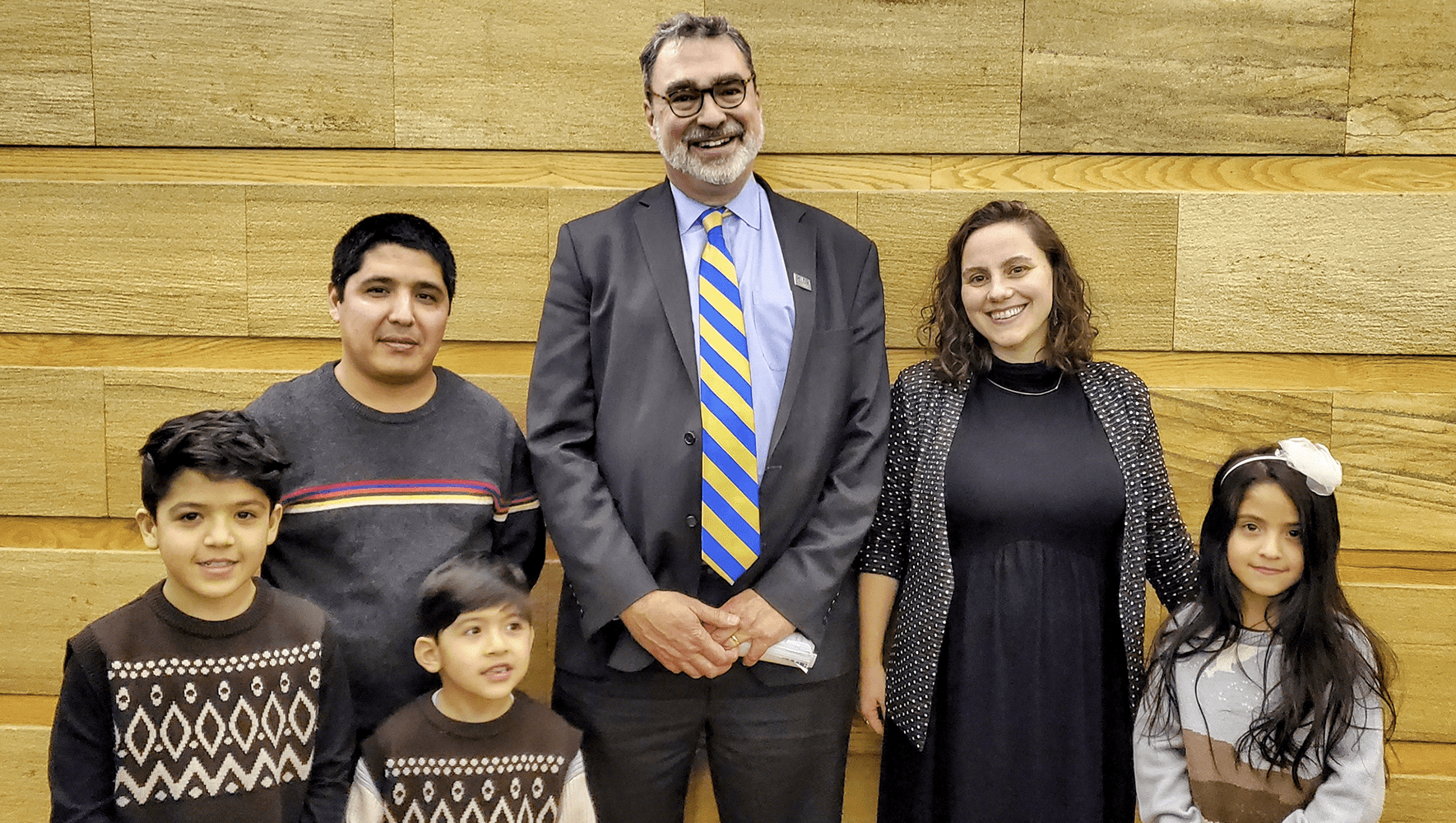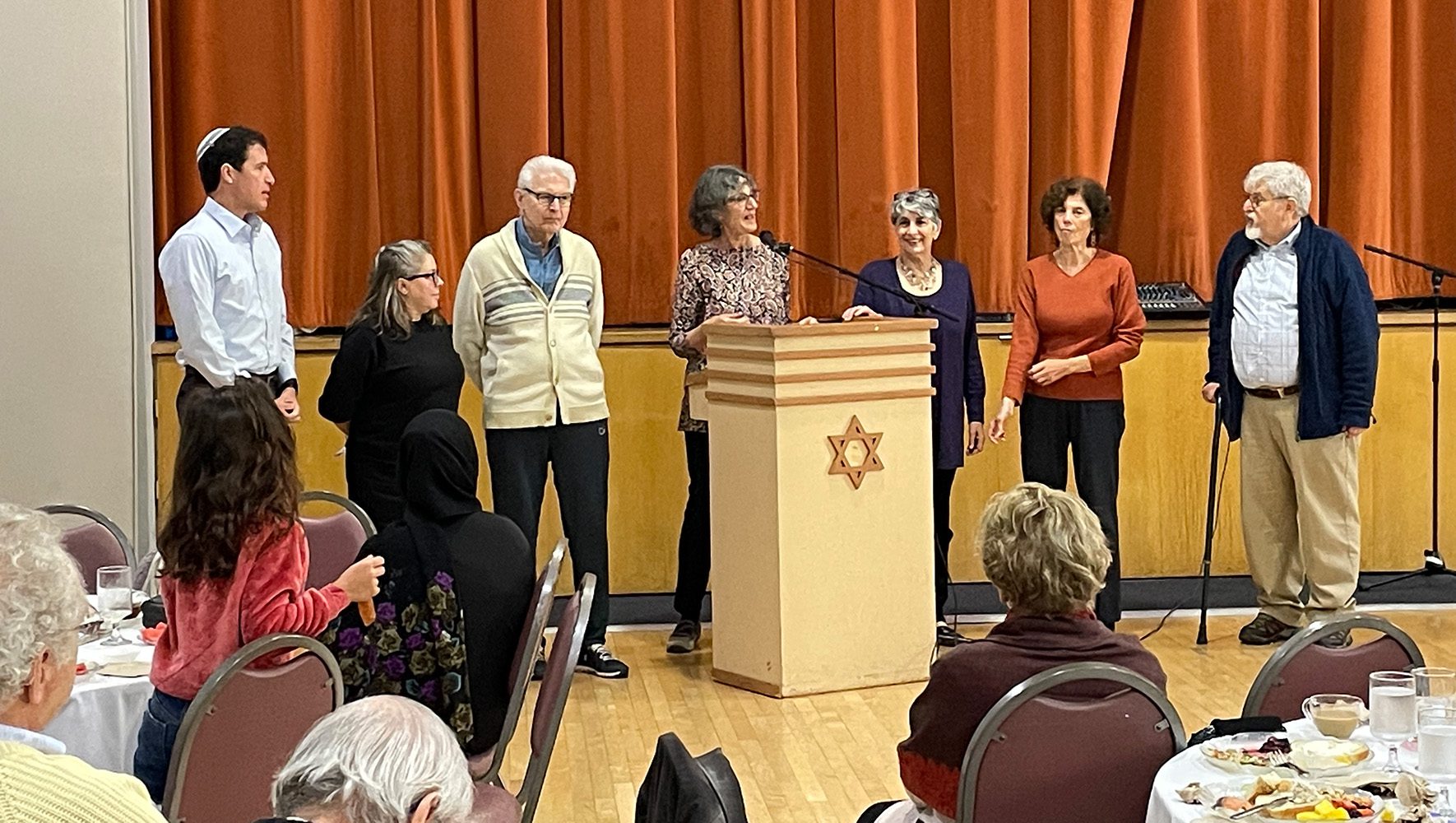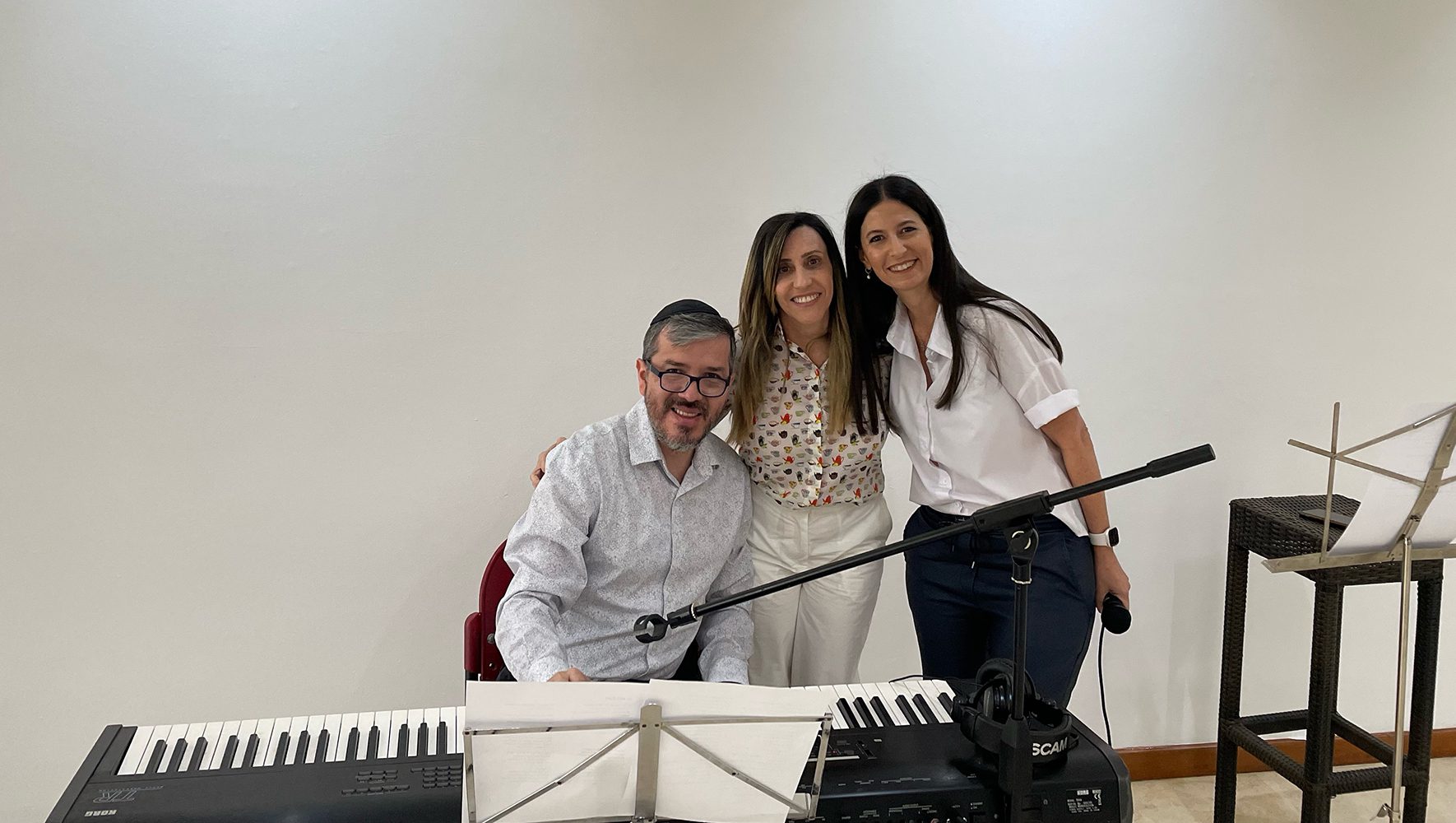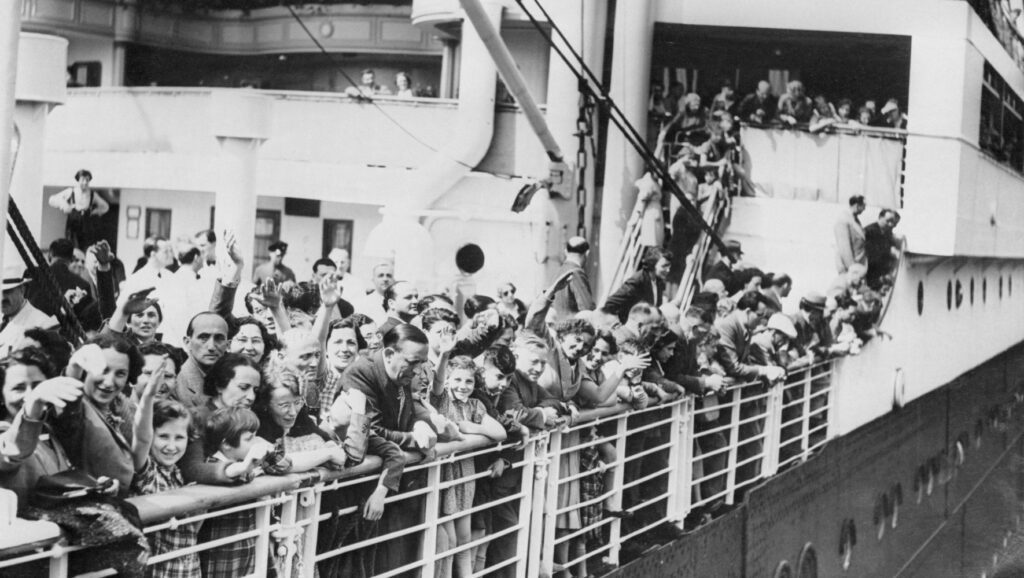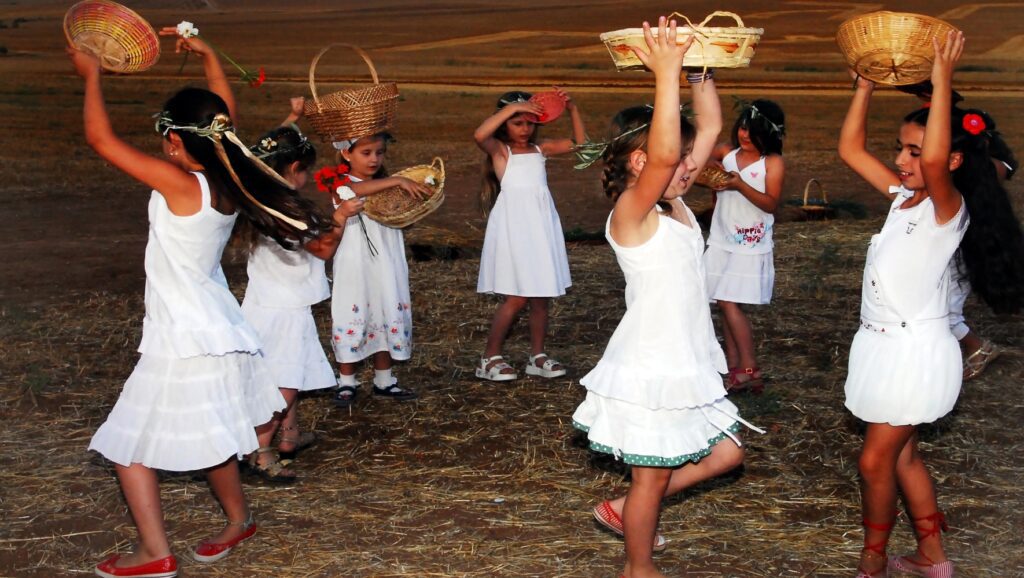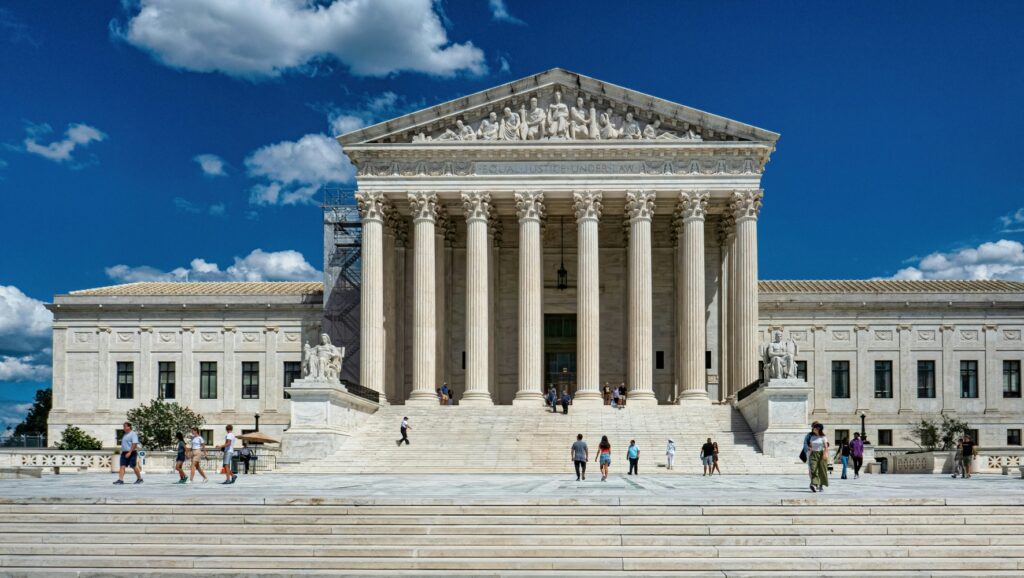On Thursday, February 2, 60 members of the Jewish community of Caracas, Venezuela, gathered in the city’s Jewish cultural center. Together, they sang Hebrew songs of peace, brotherhood, and a longing for safety and home. The principal of the local school, Rabbanit Hadara Weisman, spoke about the week’s Torah portion and how it connects to HIAS’ work on behalf of refugees.
The occasion had a powerful effect on its participants.
“Two people approached me, crying,” said Raquel Nuchi, HIAS’ community engagement coordinator for Latin American and the Caribbean. She helped organize the event for Refugee Shabbat, a HIAS-led initiative that invites communities to engage with refugee issues during their sabbath observance. “For one, Eva Friedman, it was the first time in 60 years that she had heard about HIAS, the organization that saved her mother and allowed her to leave Czechoslovakia. The other, Mimi Katz, told me that her husband had fled Europe during the war thanks to HIAS – and that today was their wedding anniversary.”
HIAS also organized several online events for the weekend, beginning on Thursday with a “Welcome to Congress” campaign kickoff and ending with a discussion of how climate change impacts forced displacement.
Those who registered for Refugee Shabbat received resources — from talking points and fact sheets to a specially curated Spotify playlist — to observe the event in a way that fits the needs of their community. Many congregations invited speakers from HIAS, local resettlement partners, or refugees living in their communities to add more personal insight to their programs.
HIAS’ fifth annual Refugee Shabbat, which took place February 3-4, was the largest one to date, with over 450 communities and nearly 500 individuals from all over the world signing up to celebrate. The response was also more global than ever, as communities across North, South, and Central America; Europe; and Africa heeded the call to dedicate a Shabbat to affirming their support for refugees and other displaced people.
Across the U.S. and Europe, communities associated with Welcome Circles — groups of private individuals who provide financial, resettlement, and emotional support to refugees — heard from their new neighbors and the community members who have helped them resettle in the U.S.
In southern California, congregants at the Pasadena Jewish Temple & Center marked a particularly significant event for the Welcome Circle at their Refugee Shabbat event on Sunday, February 5 — exactly one year after the arrival of a family they resettled from Afghanistan.
“The wife — who spoke no English when she arrived in the United States — gave a short speech to the audience,” said Joe Goldman, HIAS’ community engagement director for the Western region, who was in attendance. “It was so moving to share in her empowerment just one year after her arrival.”
In the Czech Republic, the Jewish community of Prague, who have organized a Welcome Circle for Ukrainians, also marked a special moment at their Refugee Shabbat celebrations. According to Welcome Circle Coordinator Jana Wichsová, the night of spirited singing and dancing “brought together for the first time the volunteers who donated furniture with those who are now using it. “
In New York, regional co-sponsor Westchester Jewish Coalition for Immigration (WJCI) has worked with over 40 congregations and organizations across Westchester and the North Bronx to organize Refugee Shabbat events. The coalition also organized a speakers bureau of people with a wide variety of experiences with forced displacement to speak about their experiences at events. While the official dates for Refugee Shabbat have passed, many of the communities are hosting events throughout February and beyond.
“Refugee Shabbat could be any Shabbat or every Shabbat,” said Rabbi Megan Doherty, HIAS’ senior educator. “The spirit of the program — affirming you and your community’s support for displaced people, learning more about the issues facing refugees, and taking action on their behalf — is appropriate all year round.”
Accordingly, Mensch, a Jewish social action network based in South Africa, is turning their Refugee Shabbat into a Refugee Awareness month. Throughout February, they will be partnering with the Scalabrini Centre of Capetown, a local organization offering assistance to migrants and refugees, to learn more about the experiences and the rights of refugees and asylum seekers in South Africa. In late February, they will be hosting a discussion with Jewish and refugee activists regarding their work in Ukraine and South Africa.
On February 17-19, HIAS Europe will be partnering with Nevatim, a program of the Jewish Agency for Israel that promotes initiatives for Jewish informal education in Germany, Austria, and central European countries, to present during their 10th anniversary conference. With participants spending a Shabbat together, adding a Refugee Shabbat component was a natural fit. The HIAS track during the conference will center Jewish activism on behalf of refugees, with a particular focus on the current Ukrainian refugee crisis and how to get involved.
“This widespread participation in Refugee Shabbat is a beautiful reflection of the global movement we are building together,” said Merrill Zack, vice president for community engagement. “Across the U.S. and around the world, we are seeing communities and individuals take action for refugees, asylum seekers, and other displaced people, from participating in advocacy to building Welcome Circles to directly welcome newcomers to their own communities.”
